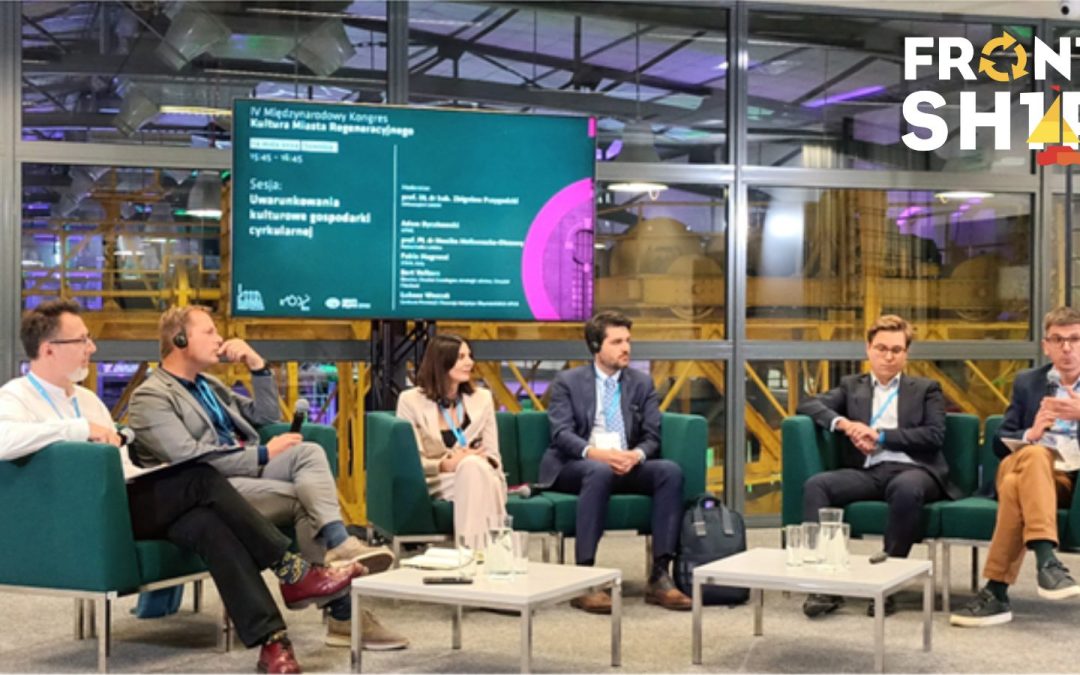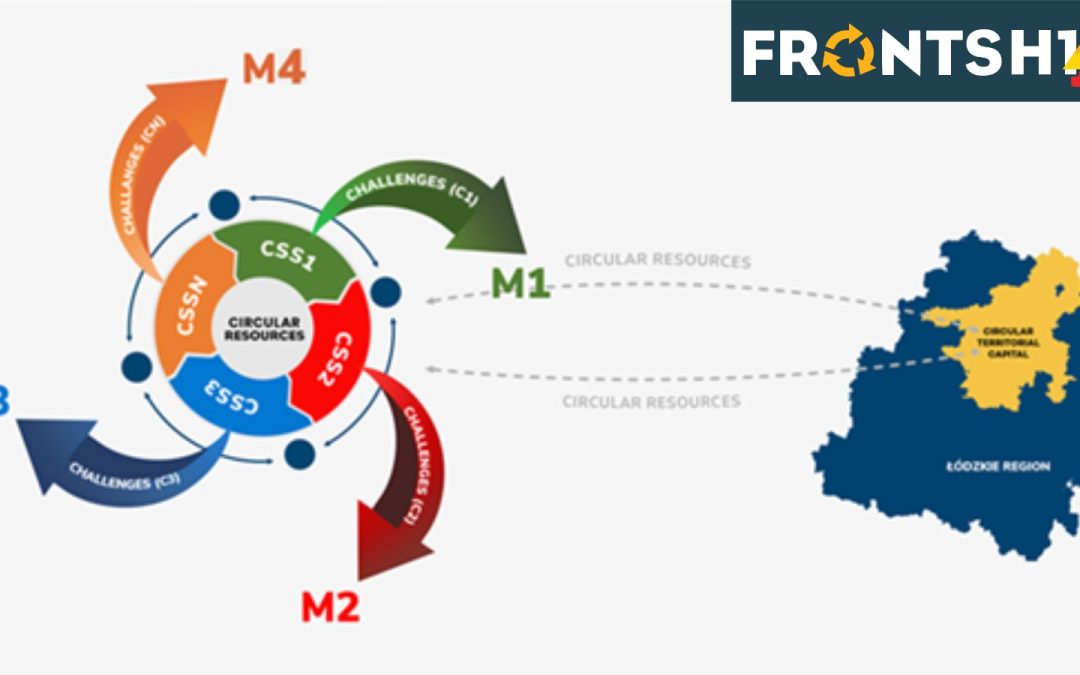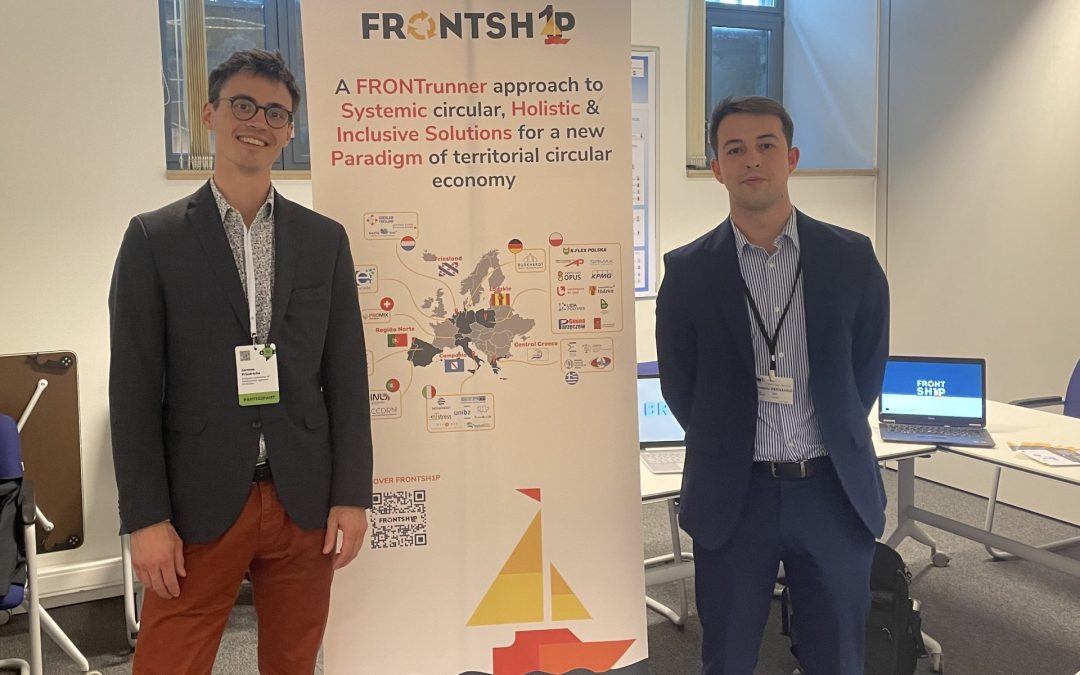Authors: Ewa Kochańska, Agnieszka Nowaczyk & Iwona Adamkiewicz
This article presents to you work package 2 of FRONTSH1P, which formally involves 24 partners – although in fact all 34 partners of the project will be involved in the implementation of the work package. The work on the Regional Systemic Circular Economy Approach spans all 48 months of the entire project duration. With 477 person months, it is also the largest work package and crucial for the success of the entire project.
At its core, WP2 is about combining, tangling, and weaving together all the necessary information to define criteria for economic development at the local and regional level, always in line with the sustainable and circular economy paradigms. Above all, the involved partners want to use all locally available resources to promote and advance sustainable economic development at the local level.
Hence, the following must be considered in this task:
- the current legal conditions at European, national, and regional level;
- the availability of a wide range of wastes transformed into raw materials needed for the development of technologies planned in the technological work packages (Wood Packaging, Food & Feed, Water & Nutrients, and Plastic & Rubber Waste);
- business models suitable for the planned economic activity, but also value chains and various aspects of how to involve local communities in the development of the circular economy; and
- any benefits from developing environmentally friendly technologies that save natural resources, water and energy while reducing waste and CO2
Most of the data that is needed to meet the information requirements of the project consortium is available somewhere, but the methodology of how to access it, how to collect, process and share it – that is whole other matter! The challenge is indeed to develop a methodology that can automate this process and minimise the need for manual data entry.
Comparing the activities of the whole Frontsh1p project with the construction of a multifunctional house, the activities within WP2 deal with an architectural project that meets the needs of the future end-users/residents, and a construction project on the basis of which a construction company will build a beautiful, resident-friendly house imagined by the users. In the FRONTSH1P project case, the main users are Circular System Solutions (CSS), the local and regional administration and the population of the Łódzkie region. The construction company building the house within WP7 will be the team from STAM and those who will cooperate with them. Based on the projects created in WP2, demo houses – regional circular solutions – will be “built” in the Łódzkie region and then implemented in three other European regions: Campania (Italy), Região do Norte (Portugal), and Fryslân (the Netherlands).
The Need for a Common Language – the FRONTSH1P Glossary
Navigating the ocean of the circular economy is a daunting challenge, especially when the crew is multilingual and the experiences of its members span across different, often remote, territories. Establishing a common language proves essential to navigate from milestone to milestone and finally to results and deliverables.
The FRONTSH1P project encompasses a multi-layered context in which the project partners need to sail from social aspects to parameters of innovative technologies and data processing to the Circular Governance Model. Therefore, it is important to use a consistent and clear terminology so that the whole crew reaches the same port. For this reason, a glossary had to be developed.
An example of a term in the glossary that needed to be defined is the “Regional Circularity Booster Toolkit”. It comprises a methodology and IT tools that form the core of the FRONTSH1P project and enable the collection and processing of regional data that is beyond compatibility and becomes interoperable. It is necessary for the implementation of a circular economy and, most importantly, it allows companies to access vital information needed to manage and grow a sustainable business.
The development of the ontology is an ongoing process within the project and the final glossary will most assuredly reflect the uniqueness of the FRONTSH1P.






